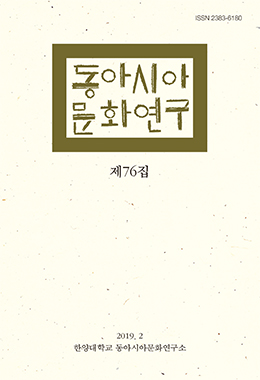이 글의 목적은 박태원의 역사서사 『약산과 의열단』에 나타난 아나키즘의 사상성 및 탈식민적 국제 연대의 궤적에 초점을 맞추어 타 역사 서사들과의 비교 분석을 시도함으로써, 해방기 민족국가 건설을 둘러싸고 전개되었던 문화적 발화들을 다각적으로 가시화하는 것이다. 해방기는 “민족사 텍스트로서 역사서사”가 부상한 시기였으며, 건국사업에 이바지해야 한다는 시대적 사명 하에 역사서사들이 “민족주의와 같은 촉매에 반응”함으로써 단일화ㆍ위계화ㆍ심미화된 민족/국가의 형상을 주로 그려내었던 시기였다. 그러나 민족주의만으로는 해석해 낼 수 없는 다채로운 역사쓰기의 관점들이 해방 공간에서 각기 다른 동력들에 의해 촉발되고 있었음을 주시할 필요가 있다. 본 연구에서는 사회주의나 민족주의 계열의 역사쓰기 이외에, 제 3의 진영인 아나키즘적 사상에 입각한 『약산과 의열단』이 어떠한 ‘건설’의 형태를 제안하고자 했던 것인지를 살펴보았다. 조선인 아나키스트들이 견지해 왔던 ‘개인의 자유 의지에 입각한 연합’이나 ‘권력에의 귀속 거부’라는 취지에 입각하여, 『약산과 의열단』은 위계적인 민족국가 건설의 명분을 모색하고자 했던 단일 영웅 중심의 타 역사서사들과는 달리 특정 위인이 아닌 개체 전체의 힘을 강조하며, 비영웅-민중이 각성하는 순간에 초점을 맞추어 수평적인 ‘집합’의 건설을 시도하고 있다는 측면에서 주목을 요한다. 이러한 ‘집합’의 형태는 민족-국가라는 단일 정치권력으로부터 멀어져 아시아-세계를 둘러싼 초국경적 연대로 확장되는 바, 위와 같은 아나키스트들의 범세계적 연대의 상상을 조명하는 것은 해방기 조선인들이 선보였던 “탈식민의 시대정신(Zeitgeist)”의 가능성을 가늠하는 한편, 해방기 역사서사가 담지하는 지역/세계와의 연관성을 보다 심층적으로 고찰할 수 있도록 한다는 측면에서 의의를 지닌다.
The purpose of this paper is to focus on the orbit of anarchism thoughts and postcolonial international solidarities found in Park Tae-won’s historical narrative 『Yaksan and the Heroic Corps』 to make a comparative analysis with other historical narratives in order to visualize cultural articulations that unfolded surrounding the construction of a nation-state during the liberation period from various aspects. The liberation period was a time when ‘historical narratives as national history texts’ rose and under the mission that they must contribute to the founding of the nation, it was a period where historical narrators ‘responded to catalysts such as nationalism’ to draw the image of a unified, hierarchical and aestheticized nation / state. However, it is important to pay attention to the fact that various perspectives on writing history that cannot be interpreted only by nationalism were triggered by different driving forces during the space of liberation. In addition to history writing from the aspects of socialism or nationalism, this study examined what type of ‘construction’ the 『Yaksan and the Heroic Corps』 based on an anarchist belief, which was a third camp, was being proposed. Based on the purpose of ‘alliance based on individual free will’ or ‘denying reversion to power’, which were the opinions of Choseon anarchists, 『Yaksan and the Heroic Corps』 emphasized the power of the group instead of a single historical figure like other historical narratives that focused on a single hero to search for the justification of constructing a hierarchical nation-state. It should be given attention that it attempted to construct a horizontal ‘group’ focusing on the moment when non-heroic public masses are awakened. This type of ‘group’ fell away from the single political authority called nation-state and expanded to a trans-border solidarity surrounding Asia and the world. Therefore, focusing on the thoughts of the pan-global solidarity of such anarchists is significant in that it measures the ‘Zeitgeist of post-colonialization’ that the people of Choseon displayed during the liberation period, while also making an in-depth investigation on the correlation of liberation period historical narratives with the region and world.


